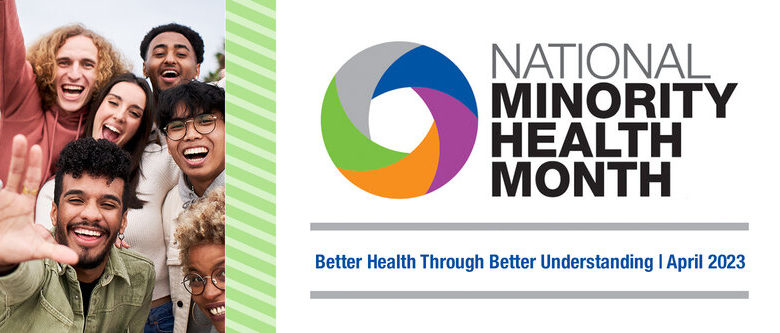National Minority Health Month 2023
Every April, the U.S. Department of Health and Human Services (HHS) celebrates National Minority Health Month! The theme for 2023 is: Better Health Through Better Understanding, and it focuses on improving health outcomes for racial and ethnic minority communities by providing culturally and linguistically appropriate healthcare services, information, and resources.
Did you know that nearly 20% of people in the U.S. speak a language other than English at home? Therefore, it is important to provide patients with culturally appropriate information in a language that they understand. This can empower individuals to create healthier outcomes for themselves and their communities.
While there are actions that a healthcare provider can do to communicate with their patients, there are also a few things you can do the next time you see a medical provider:
- Make a list and prioritize your concerns. For example, do you have a new symptom you want to ask the doctor about? Do you want to get a vaccine? Are you concerned about how a treatment is affecting your daily life? If you have more than a few items to discuss, ask about the most important ones first. Don’t put off the things that are really on your mind until the end of your appointment—bring them up right away!
- Take information with you to the doctor. You can bring all your prescription drugs, over-the-counter medicines, vitamins, and herbal remedies or supplements with you. Or you can also bring a list of everything you take.
- Consider bringing a family member or friend to the doctor’s office. Let your family member or friend know in advance what you want from your visit. Your companion can remind you what you planned to discuss with the doctor if you forget. She or he can take notes for you and can help you remember what the doctor said.
- Keep your doctor up to date. Let your doctor know what has happened in your life since your last visit. Mention any changes you have noticed in your appetite, weight, sleep, or energy level. Also tell the doctor about any recent changes in any medications you take or the effects they have had on you.
- Request an interpreter if you need one. If the doctor doesn’t speak your language, ask the doctor’s office to provide an interpreter. Even though some English-speaking doctors know basic medical terms in Spanish or other languages, you may feel more comfortable speaking in your own language, especially when it comes to sensitive health subjects. Call the doctor’s office ahead of time, as they may need to plan for an interpreter to be available.
For more information about national minority health month, check out: https://www.minorityhealth.hhs.gov/nmhm/









